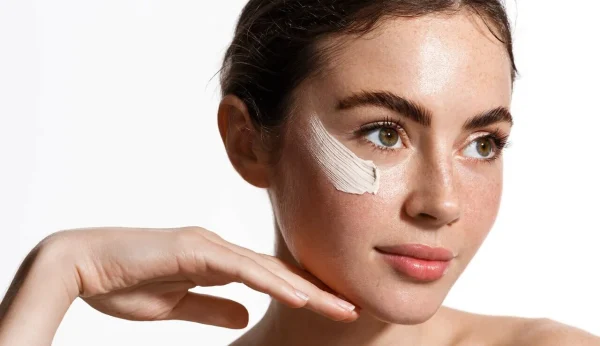
Table of Contents
ToggleDoes Moisturizer Help With Acne
Does Moisturizer Help With Acne? This is a common question in skincare especially for newbies. Acne, a common skin condition affecting millions worldwide, can be distressing. It’s characterized by pimples, blackheads, and whiteheads, often appearing on the face, neck, chest, and back. Acne occurs when hair follicles become clogged with oil and dead skin cells, leading to inflammation and the growth of bacteria.
The Moisturizer Conundrum
When dealing with acne, the last thing many people think of is moisturizer. After all, won’t moisturizer make oily skin worse? Surprisingly, the answer isn’t a straightforward yes or no.
The Role of Moisturizer
Moisturizers play a crucial role in maintaining skin health, regardless of skin type. They help hydrate the skin, strengthen the skin barrier, and prevent moisture loss. But how does this relate to acne?
Hydration and Acne
Contrary to popular belief, acne-prone skin still needs hydration. Dehydrated skin can trigger an increase in oil production, leading to more acne. By using a lightweight, non-comedogenic moisturizer, you can keep the skin hydrated without clogging pores.
Choosing the Right Moisturizer
Not all moisturizers are created equal, especially when it comes to acne-prone skin. Look for products labeled “oil-free” or “non-comedogenic,” as these are less likely to exacerbate acne. Ingredients like hyaluronic acid, glycerin, and ceramides are beneficial for hydrating the skin without causing breakouts.
Moisturizer and Acne Treatment
Moisturizer can complement acne treatment by helping to reduce irritation and inflammation caused by acne medications. Some acne treatments, such as benzoyl peroxide or retinoids, can be drying, making moisturizer essential for maintaining skin balance and minimizing side effects.
How to Use Moisturizer for Acne-Prone Skin
When incorporating moisturizer into your skincare routine, it’s essential to apply it correctly:
1. Cleanse: Start with a gentle cleanser to remove dirt, oil, and makeup from the skin.
2. Treat: If using acne medication, apply it before moisturizer to allow proper absorption.
3. Moisturize: Apply a pea-sized amount of moisturizer to the face and neck, gently massaging it in with upward motions.
4. Sun Protection: Finish with a broad-spectrum sunscreen during the day to protect the skin from harmful UV rays.
Frequently Asked Questions On Moisturizer and Acne
1. Does moisturizer help with acne?
Yes, moisturizer can help with acne by maintaining the skin’s moisture balance and preventing excessive dryness. However, it’s essential to choose a non-comedogenic, oil-free moisturizer specifically formulated for acne-prone skin to avoid clogging pores.
2. Can moisturizer make acne worse?
Using the wrong type of moisturizer or applying too much can potentially worsen acne by clogging pores and leading to breakouts. It’s crucial to select a lightweight, oil-free moisturizer that won’t exacerbate acne symptoms.
3. What ingredients should I look for in a moisturizer for acne-prone skin?
Look for moisturizers labeled as non-comedogenic and oil-free. Ingredients like hyaluronic acid, glycerin, and ceramides can help hydrate the skin without clogging pores. Additionally, moisturizers containing acne-fighting ingredients such as salicylic acid or benzoyl peroxide can be beneficial for acne-prone skin.
4. How should I incorporate moisturizer into my acne skincare routine?
After cleansing and applying any acne treatment products, gently apply a pea-sized amount of moisturizer to your face and neck. Be sure to use gentle, upward motions and avoid rubbing or pulling on the skin, which can irritate acne-prone skin.
5. Can moisturizer help with acne scars?
While moisturizer won’t directly treat acne scars, keeping the skin hydrated can improve its overall appearance and texture, which may help minimize the appearance of scars over time. Look for moisturizers containing ingredients like niacinamide or vitamin C, which can help brighten and even out skin tone.
6. Should I avoid moisturizer if I have oily skin and acne?
No, even oily and acne-prone skin needs moisturizer to maintain hydration and support skin barrier function. Opt for lightweight, oil-free moisturizers specifically formulated for oily or acne-prone skin to avoid exacerbating breakouts.
7. Can I use moisturizer along with acne medication?
Yes, it’s generally safe to use moisturizer along with acne medication. In fact, moisturizer can help mitigate some of the dryness and irritation that may occur as a side effect of acne treatments like benzoyl peroxide or retinoids. However, be sure to wait a few minutes after applying acne medication before applying moisturizer to allow it to fully absorb into the skin.
8. How often should I apply moisturizer if I have acne-prone skin?
It’s recommended to apply moisturizer twice daily, in the morning and evening, as part of your skincare routine. Consistent hydration is crucial for maintaining healthy skin, even for those with acne-prone skin. Adjust the amount of moisturizer based on your skin’s needs and the climate/environment you’re in.
Conclusion
In conclusion, moisturizer can indeed help with acne when chosen and used correctly. By keeping the skin hydrated and balanced, moisturizer can contribute to overall skin health and improve the effectiveness of acne treatment. Remember to select a moisturizer tailored to your skin type and acne concerns, and don’t forget the importance of consistency in your skincare routine.

Leave a Reply